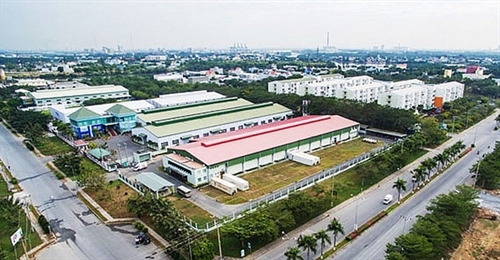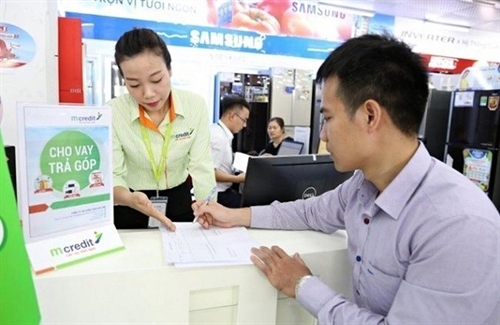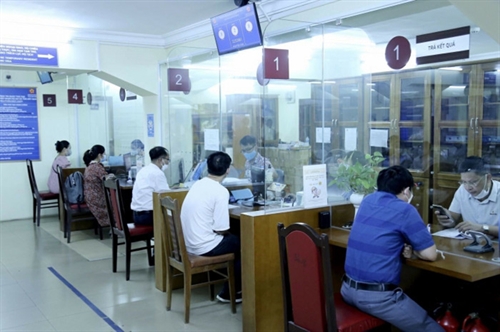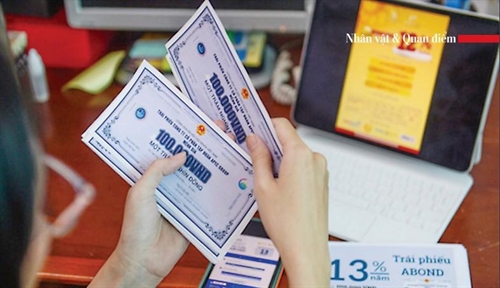 |
| Collecting biometric data for grant of chip-based ID cards in Hanoi__Photo: VNA |
Issuing ID cards to Vietnamese citizens aged under 14 years and personal identification numbers and personal identification certificates to people of Vietnamese descent
According to the 2014 Law on Citizen Identification, Vietnamese citizens aged full 14 years or older are eligible for grant of ID cards. The draft law now proposes granting ID cards to under-14 persons if they or their parents or guardians so wish.
Specifically, in order to get ID cards for their under-6 children, when carrying out birth registration procedures, parents or guardians would submit applications for ID cards to justice-civil status agencies for the latter to forward their applications to public security offices for grant of ID cards and registration of residence. If having fulfilled birth registration procedures, parents or guardians would need to contact identity management agencies to apply for ID cards for their children. For under-6 children, biometric collection would not be required, while children aged between six years and 14 years would have to show up at identity management agencies to provide their face images.
One of the salient proposals in the draft law is the grant of personal identification numbers and personal identification certificates to people of Vietnamese descent.
Accordingly, persons of Vietnamese descent eligible for grant of personal identification numbers and personal identification certificates include stateless persons currently residing in Vietnam who used to have Vietnamese citizenship by jus sanguinis, and their offspring and grandchildren.
Personal identification certificate holders would have their legitimate rights and interests guaranteed by the State and may be asked to produce their personal identification certificates to competent authorities under regulations.
Integrating information other than personal identification information into ID cards
Once the draft is approved, ID cards would be integrated with some other information on citizens which are shown in papers granted by Vietnamese authorities and verified via national or specialized databases.
To-be-integrated data include information on the health insurance card, social insurance book, driver’s license, birth certificate, marriage certificate and other documents as specified by the Government. Information integrated into ID cards would be as valid as papers containing such information.
Procedures for integration of information into ID cards would be carried out separately or concurrently with those for grant, renewal or re-grant of ID cards.
Developing e-ID
Development of e-ID is another important policy proposed in the draft law. As defined in the draft, a citizen’s e-ID is an e-identification account containing information printed on his/her ID card, information integrated into his/her ID card and other information stored in the electronic identification and authentication system.
E-ID accounts would be used when citizens carry out administrative procedures for using public services in the electronic environment or in other transactions. Electronic ID cards might be used as substitutes for paper ID cards as well as other papers already synchronized on e-identification accounts in transactions requiring the presentation of such papers.
The draft law is expected to be passed by the National Assembly in October of this year.- (VLLF)









